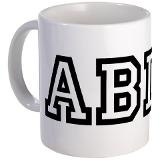by Ana Schwartz
 For a Ph.D candidate in the humanities, LinkedIn might seem to be only remotely relevant. LinkedIn serves as a platform for connecting professionals, yet several important qualities of the academic profession don’t lend themselves to smooth representation in such a social network. Graduate research demands a highly specialized skill set that’s not often widely applicable and the networks cultivated in academia are often already close, occurring independently of a central platform—at conferences, through personal introductions, or perhaps on intra-disciplinary message boards. Anticipating future publication makes sharing samples of professional writing online a dicey proposition. Furthermore, academia boasts a unique culture of industry loyalty: tenure—or the pursuit of tenure—prevents great investment in alternate career paths, and in turn, diminishes the need to demonstrate a skill set beyond those taught in graduate school such as research, teaching.
For a Ph.D candidate in the humanities, LinkedIn might seem to be only remotely relevant. LinkedIn serves as a platform for connecting professionals, yet several important qualities of the academic profession don’t lend themselves to smooth representation in such a social network. Graduate research demands a highly specialized skill set that’s not often widely applicable and the networks cultivated in academia are often already close, occurring independently of a central platform—at conferences, through personal introductions, or perhaps on intra-disciplinary message boards. Anticipating future publication makes sharing samples of professional writing online a dicey proposition. Furthermore, academia boasts a unique culture of industry loyalty: tenure—or the pursuit of tenure—prevents great investment in alternate career paths, and in turn, diminishes the need to demonstrate a skill set beyond those taught in graduate school such as research, teaching.
Nevertheless, if we consider the growth of LinkedIn as a reflection of its possibilities, and its increasing flexibility across professional communities, there might be some utility in the social network. Career Services at the University of Pennsylvania offers appointments as well as walk-in visits during which students can work one-on-one with advisors to identify how LinkedIn, among other resources, can best supplement a student’s career goals, within the academy or otherwise. During a recent fifteen-minute walk-in meeting, Joseph Barber pointed out several important networking features that LinkedIn provides to help users represent their unique professional qualities. Cumulatively, these features—facilitating connections, showcasing endorsements, and providing tools for ongoing networking and social engagement—can be useful to research-oriented academics by facilitating professional reflection and self-assessment.
Profile-Based, Not Post-Based
LinkedIn is a social network that, like Facebook, and unlike, say, tumblr, is profile-based rather than post-based. Because LinkedIn prioritizes professional networks, the profile data used to suggest connections follows educational and employment history and can show how many degrees of separation exist between any two users. Although searches for other users must often be deliberate rather than prompted by the network, and because LinkedIn places high priority on public networking, there’s little point in making a profile difficult to find. And since a user often has to search out connections, the cumulative character of these connections can be a deliberate, if small part of a professional profile.
Demonstrate Expertise with Endorsements
These connections can become meaningful first, and most obviously, in leading to more connections, both virtually and in person. Second, they can be useful through the “endorsement” feature. LinkedIn allows users to request and grant endorsements regarding skills and expertise. These endorsements range from mastery of specific software (“Microsoft Office”) to facility in a broad skill set (“Research”). Over time, these endorsements appear in a graph that showcases the individual’s strongest qualities. Note that endorsements can be solicited. If a user considers herself exceptionally skilled in fundraising, for example, she might request endorsement in that specific facility by those familiar with her expertise. These endorsements can range from checking a box to writing a prose recommendation of another user’s strengths, a feature much like the letters of recommendation that often act as the currency of the academic profession. As a graduate student with teaching obligations, and thinking back to the first few letters requested by current and former students, this feature here provides useful insight into the sorts of skills and values that might be demanded by future employers of undergraduate students and advisees.
The Value of Groups
But LinkedIn also provides platforms to directly create connections, through shared content, through groups that create and organize communities, and through search tools to locate relevant individuals in the field. One of the most compelling features LinkedIn provides is a platform to repost content from elsewhere on the web, with a space for comments and conversation. These posts often take business and industry as their theme, but range over a broad spectrum of specific topics. Because they’re hosted on a professional network, the discussions that take place following these articles tend to significantly more thought-provoking than the general tone of conversation elsewhere on the internet. And because they take place within the platform, a user’s profile will link to recent comments, which highlights not only the topics that interest individual, but also point to his or her specific thoughts on the topic, as well as the quality of his or her participation, writing style, etc. Similar to the posts feature are groups, organized around industries and interests, where users can connect based on shared qualities but in a more general fashion, as well as interact in a more direct, if still exploratory fashion, with others. Content such as articles and job searches can be posted within groups, which range from “English Teachers Anonymous” to “Penn Swimming Alumni.”
Connect with Alumni
More specifically focused are the tools under the “Networks” tab, particularly the “Find Alumni” feature. This tool taps into the immense data that LinkedIn gathers from its users. Based on a user’s listed alma mater, and her connections, both personal and institutional, she might locate key individuals at one or two degrees of separation, and then sort them by alma mater, by industry, by specific skills or even location. Toggling categories yields smaller or larger lists of relevant individuals, whose profiles a user can often access (although not always, depending on the other user’s privacy settings and level of LinkedIn membership). Based on usage of the resources named earlier—connections, content, groups—these new alumni connections might be present themselves as more or less relevant to my professional interests, and, vice versa, the archive demonstrating a given user’s own interests might bridge a connection between two otherwise distantly connected alums.
At this point, reflection and self-assessment becomes inevitable. A profile is by default visible to others and can shape a more vivid representation of one’s professional interests and qualities than can a resume alone. Through this frame, LinkedIn appears as a useful tool for discerning unique strengths—the combination of networks (connections), skills (endorsements) and knowledge (content). This is relevant to the ABD doctoral candidate in a number of small, but meaningful ways. Generally speaking, it’s a nice refocusing from the intense—and to some degree necessary –tunnel-vision attendant to research and writing. It reminds the doctoral candidate of a wider world and the possibility of other career paths. Specific to my own dissertation, it’s a useful though experiment about the way that media and genres shape personal representation of the individual, but you don’t have to be an doctoral candidate in English Literature to be reminded of the one of the greatest resources of the university—the diverse and intelligent people with which we’re surrounded with here at the University of Pennsylvania and the value of these colleagues to all disciplines.
Ana Schwartz is a PhD candidate in English Literature specializing in genre and seventeenth century American writing. You can check out her common-place blog hosted by tumblr at http://www.m-d102.com.




 As a career counselor, I think a lot about “labor” and what work means in the everyday lives of Americans. Most of us spend 40 hours a week at our place of employment, lots of us many more than 40. I spent the Labor Day weekend home with my father in upstate New York. He is now 75 years old and long retired from being a New York State Trooper, a job he held for over 30 years. As a child, I don’t remember him ever being particularly enthusiastic about going to work, although he seemed happy enough to have a steady job with good benefits. (The job market was not stellar in the Catskills even back then, so these qualities were definitely sought after in employment!) I asked him how he had decided to become a police officer, and he said he entered the army after graduation and was assigned to be a military police officer. When he left the army two years later becoming a state trooper seemed like the most sensible thing to do, given he was getting ready to get married and start a family he would need to support.
As a career counselor, I think a lot about “labor” and what work means in the everyday lives of Americans. Most of us spend 40 hours a week at our place of employment, lots of us many more than 40. I spent the Labor Day weekend home with my father in upstate New York. He is now 75 years old and long retired from being a New York State Trooper, a job he held for over 30 years. As a child, I don’t remember him ever being particularly enthusiastic about going to work, although he seemed happy enough to have a steady job with good benefits. (The job market was not stellar in the Catskills even back then, so these qualities were definitely sought after in employment!) I asked him how he had decided to become a police officer, and he said he entered the army after graduation and was assigned to be a military police officer. When he left the army two years later becoming a state trooper seemed like the most sensible thing to do, given he was getting ready to get married and start a family he would need to support.